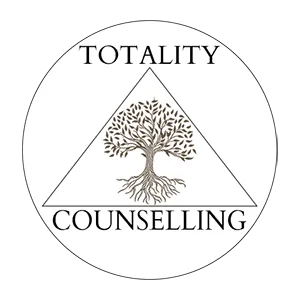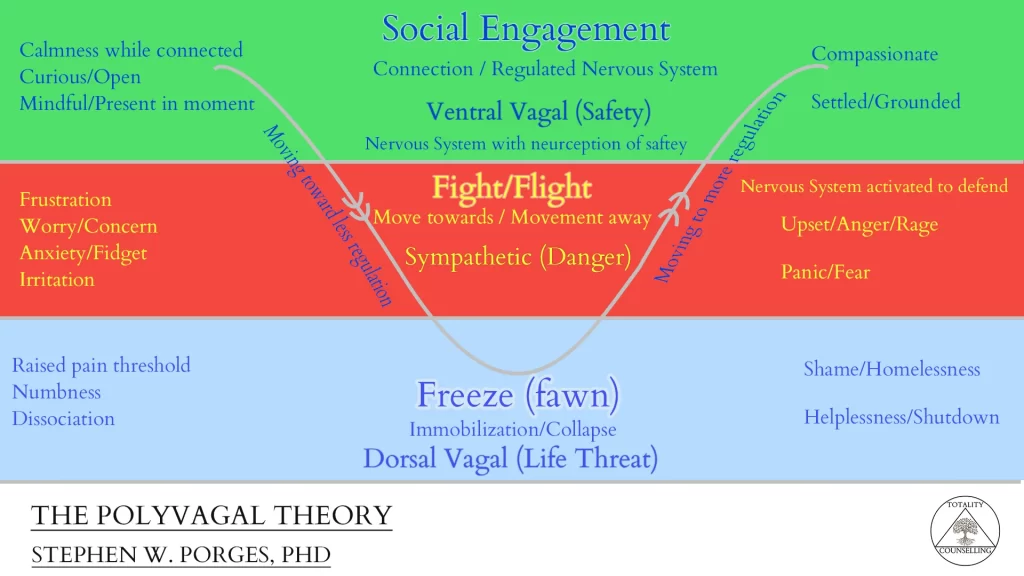Anger – Navigating Anger to Bring Change to our Relationship with It
Anger is part of all our lives, both when we get angry ourselves and when we interact with others who are angry. Why do we get angry? Can we help but get angry? What can we do with or about our anger? How can we change our experience, our relationship with the angry outbursts that get us into challenging situations, disrupt our relationships, and often create that awful feeling after an outburst?
Many see anger as a destructive force and it certainly can be, however there is more to it than that. Many teachings and therapeutic modalities describe anger as one of the core or natural emotions. Anger is one expression of the fire that lives inside of us. I aim to broaden awareness and offer perhaps a reframe of perspective on anger. Anger isn’t inherently good or bad, it’s an energy that moves us, and has had an important role to play in our lives. I don’t subscribe to the idea that anger is something to rid ourselves of, only that we consciously master more of our relationship with it.
An Experience of Anger
This is a brief recording that offers a short experience to get to know anger in your body.
I believe that an experience brings the greatest potential for understanding and transformation.
When Anger causes trouble?
Current society tells us, we shouldn’t be angry, that it’s not natural and we should push it away. Like sexuality it’s become a taboo topic. At the same time, it’s part of daily life for most people. We have all had experiences of anger. Much of our society shames anger, pushing it further underground.
Anger doesn’t just go away, we can transform it through consciously working with, or we let it slip back into our subconscious where it leaks out into our lives in covert ways. As you might imagine when we bottle up our anger and we don’t resolve what’s underneath, it finds a way out, often causing destruction in our lives, our relationships and to our life satisfaction.

Holding anger in our bodies and in our thinking is like a poison to our well being physically, mentally, emotionally and spiritually.
Anger a Destructive Force
When we view the energy of our anger as a negative thing our natural inclination is to hold it at bay, to deny that it exists in us and in our experience. We fear that it might overwhelm us, push us to the brink of something we can’t fathom. As we push our anger down through our denial of its energy, we resist its energetic movement.
We learn from our families and societies that we shouldn’t be angry, that we should feel shame for having the experience of being angry. We watch as our parents, aunties and uncles and community leaders demonstrate the denial of their own anger. Through this we might learn to fear and shame our own anger, creating or re-enforcing beliefs that we are bad, we are dangerous, we are too much. It might also result in us being terrified of anyone who strongly expresses their anger towards or near us.

Either way we unconsciously decide that anger is bad and shut ourselves down to it. Shutting down to anger isn’t good or bad, sometimes it’s necessary to protect ourselves in the short term; in the long term only coming to peace with anger frees us of the impact it has on us.
What is Anger? Why do we get angry?
We all experience anger in a number of ways. It’s an energy that rises up inside us. Often it prepares us for the potential of a fight or to flee. It most often mobilizes the fight in “fight or flight”. One reason we get angry is we feel threatened. Anger is a way we defend or stop ourselves from having the experience of terror, discomfort and all types of fear. Anger is often our bodies way of reminding us of past experiences when we felt we needed to push away a person or experience.
Anger is a boost of energy that propels our spine upwards so we can stand up tall, to make a stand. This boost of energy is useful if we need to stand our ground against a wild animal or someone who is physically threatening us, or when we need to set a strong boundary. In current society it’s becoming less necessary to physically defend ourselves from danger, than it was in our past.
This doesn’t prevent many of us from feeling anger day-to-day. It has become less accepted in our western society to express or release the energy of anger. While creating the experience of safety in our society is important to creating a more peaceful and self-regulated society. Denial of anger only bottles it up for it to rise another day. If we learn how to handle anger in our bodies, and resolve the reasons within for anger reactions, then can we have a more peaceful society.
There are many ways we experience and describe anger. It comes in varying levels of intensity, directed both externally and internally. You might notice that each describes a state of being, each also describes how we fight with what is happening or we are experiencing in the moment.

Different Ways we experience and Describe Anger
- Frustration
- Rage
- Resentful
- Mad
- Irate
- Aggression
- Annoyance
- Jealousy
- Feeling Critical
- Bitter
- Infuriated
- Furious
- Disrespected
- Provoked
- Skeptical
- Dismissive
- Indignant
- Wrath
- Irritation
- Terror
- Hostility
Anger an Indicator of Dis-empowerment or Disrespect
Anger can be an indicator or message we send ourselves about something being out of alignment. It lets us know that part of us feels dis-empowered, so we might change something, let something go, or accept something about the situation as it is. Dis-empowerment can feel a lot like being disrespected. How dare you say that about me, or worse say that about my Wife or my mother.
If we think rationally, does it really matter what someone else thinks or says about us or someone we know? Just because someone says something does it make it true? It’s not the words that are said in the moment that upsetting, it’s the past memory or belief we hold that triggers our bodies to react in an “angry” way.
When we understand what is behind or is being protected by the experience of feeling dis-empowered or disrespected, and we learn to handle the energy it generates, then we can consciously decide what do with it, and how we will allow it to impact of state of being.
Of course, when we are in the middle of a strong angry experience having any kind of new or broad perspective is going to be next to impossible. When we begin to work with anger in an intentional conscious way it becomes possible to transform our perceptions and experiences with it.
Anger: A Defence to Fear
Anger is often a defensive response to fear. Here are some examples of what fears our anger might be protecting us from experiencing:
- Fear that we will be abandoned
- Fear that we are in danger
- Fear that we are unworthy
- Fear of failure
- Fear of Loss
- Fear of Judgement
- Fear of Losing Control
- Fear that we aren’t good enough
- Fear of our Power
- Fear of the Future
- Fear that we will die (non-existence)
- Fear that we are bad
- Fear there isn’t enough
Anger – Facing Out or Facing In
Anger can be directed outward to others, or internally towards ourselves. We become irritated by how others act and treat us, we see all that is “wrong with the world”. As we direct our anger inward, we might become impatient and judgmental with ourselves. We create an inner fight through self-condemnation, self-ridicule and self-depreciation.
Anger and the Impact on our Societies
Take one look at the violence present in our world today and you see the effects of our unresolved anger. In no way am I saying that it’s ok if we attack other people when we get angry, only that the violence in our world is an outward expression of the fight and flight response we experience internally. Anger is energy and it’s not harmful in of itself. When what it protects is left unresolved the expression of anger fuels lasting conflict that impacts our societies as a whole.
Anger and the Impact on our Societies
Take one look at the violence present in our world today and you see the effects of our unresolved anger. In no way am I saying that it’s ok if we attack other people when we get angry, only that the violence in our world is an outward expression of the fight and flight response we experience internally. Anger is energy and it’s not harmful in of itself. When what it protects is left unresolved the expression of anger fuels lasting conflict that impacts our societies as a whole.
How can we Change our Relationship with Anger?
There isn’t a linear path that we follow to transform our anger. Like anything we are learning there are aspects of the process that we will come back to again and again, each person and each experience will be different.
For a more in-depth explanation of how we might transform our anger please look at my article called “A Process of Change” (Coming soon). I will suggest a quick overview of how you might change your relationship with anger to improve your life here.
An Outline of how you Might Transform your Anger
The first step is a willing for something to change, reading this article shows some willingness already. The next step is getting to know your anger. Here I am suggesting getting to know your anger in your body; how your body experiences anger. As we get to know the experience of anger in our bodies with awareness it allows us to have a different experience than we can when we aren’t aware of it. Our physical experience of something is called our somatic experience.
Once you start bringing awareness to something; only then can it change. Through awareness and guidance, you can begin to regulate the energy of anger in your nervous system. To regulate your nervous system means to learn how to ride the waves of strong emotions in the body, without becoming overwhelmed by them.
Anger is most often a split-second instinctive reaction to a threat of some kind. As we regulate our nervous system, we create more space between what is happening to us and our reaction to it. As this space before we react widens, we are able to start to looking at the thoughts and memories related to these bodily reactions in a new expansive way. We are able to see things with new perspective and decide whether those perspective are helping us or not.
Our bodily reactions happen faster than our thinking or cognitive mind, however, they are linked. As we lessen the intensity and impact of our body’s reactions, we take back the control to consciously decide what state of being we will be in. As we have new experiences in our bodies, change our thinking and begin to choose and experience new states of being, we rewire the pathways in our brains. As we rewire our old brain patterns to new more helpful one’s, we change our dynamics in relationships, and are able to access more of our core resources and abilities.
Core Self – Trusting Ourselves to Handle Things without Anger
One last way that our relationship with anger changes, is by us accessing more of our Core Self. Our core selves can take care of us in a way that our defensive parts can’t. Our Self understands the big picture of our lives. As we calm our nervous systems, identify and expand our thought and belief patterns, and shift how our defensive parts react, we open up our relationship with our Core Self. As our access to our Core Self expands it enables us to support all our other parts like an unconditionally loving parent that we’ve never known.
What can we transform our Anger?
Here are a few things you can do to support yourself in changing your relationship with Anger. Things that will help you transform your life for the better:
- Physical Exercise – This helps to move the energies in our bodies.
- Breath Work – A great way to access energies in the body without being fully overwhelmed
- Yoga – Both a physical and energetic way to change our relationship with energy in our bodies
- Anger Expression – Yelling into a pillow, yelling in the car/forest, beating a chair with pool noodle, rage rooms. These can be a great way to move the energy of anger, to find expression of anger and to foster more acceptance and understanding of it. These are best done with the guidance of someone trained in this type of expression and how to use it.
- Spiritual Practices – Many spiritual practices help us to access the aspect of us that can see beyond our anger and help us to balance our nervous systems.
- Setting Boundaries in our lives – Boundaries help us define what is acceptable for us and what isn’t. Providing us with self created safety. We empower ourselves by intentionally deciding what is safe for us.
- Somatic Based therapies – These teach us through experience how to make peace with our bodily sensations
- IFS (Internal Family Systems) or Parts Work – These help us to make peace with the parts of us that feel they need to defend us from threats that are often not still present in our lives.
- Polyvagal Theory based therapies – These are based on the understanding of the nervous system and how to become more regulated (calm) in our bodies.
- AEDP therapy – AEDP uses somatic experiences, strongly focusing on the innate ability to heal and transform, uses attunement to help clients become more aware of their experience, uses secure attachment to teach and radiate the experience of safety in the body

Closing thoughts on Anger
Anger can be such a strong experience to make peace with. As we transform our physical experience with it, we are able to empower ourselves to handle strong feelings differently. As we gain acceptance and understanding of the angry parts of us, we have the space to change our minds about the past. The energy of Anger is a powerful emotion that when transformed can be used to support us in helpful ways. The energy of passion, conviction and dedication is very similar to the energy of anger.
As we embrace safety, transform strong bodily energies and shift unhelpful beliefs we can hugely impact the quality of our lives. As we disconnect our unconscious angry reactions to circumstances, people and experiences we take back the power to create more fulfilling lives.
“What you resist not only persists, but will grow in size.”
~ Carl Jung

 Previous Post
Previous Post



